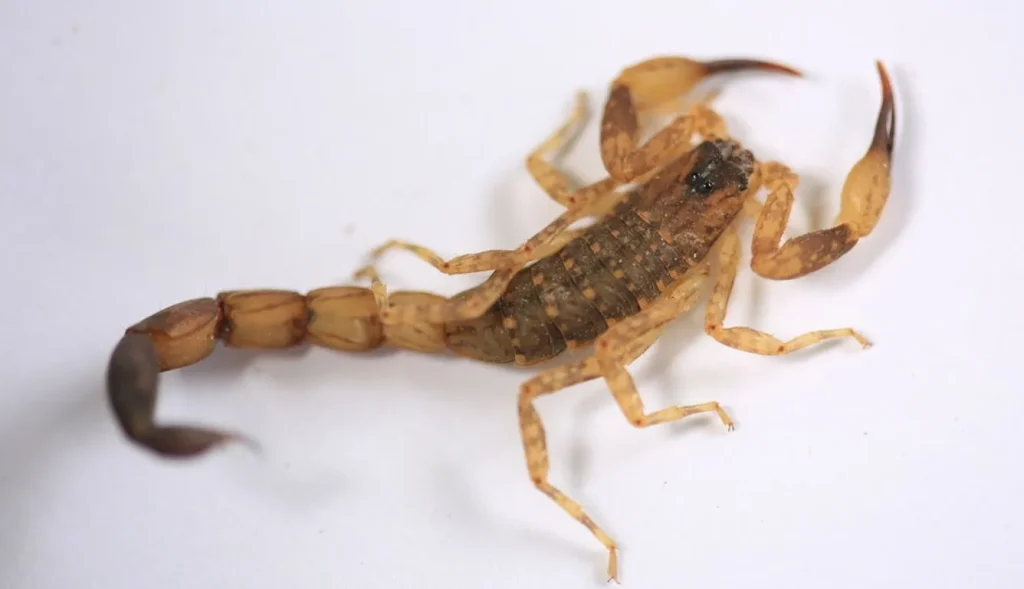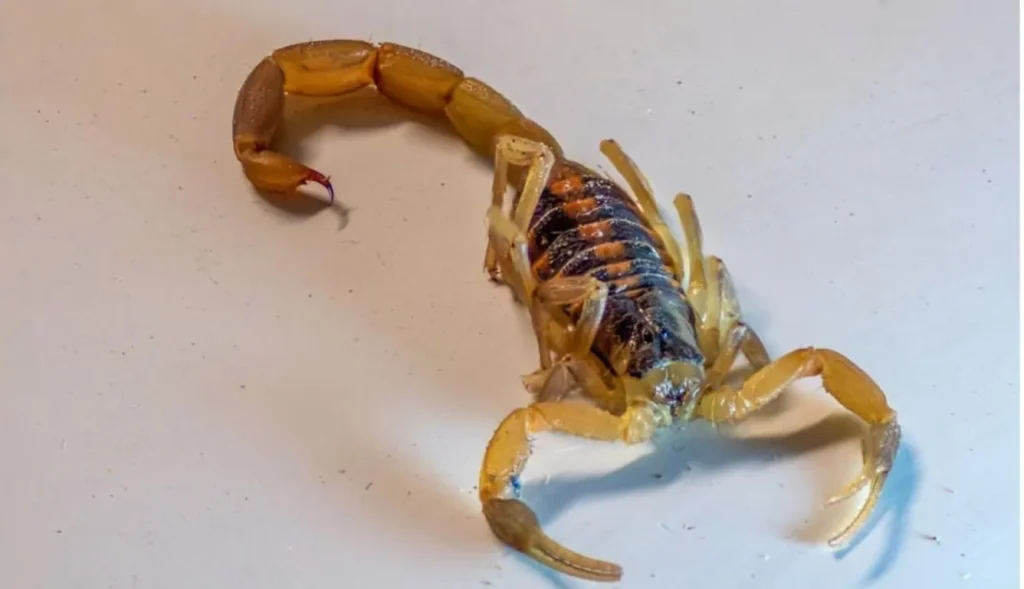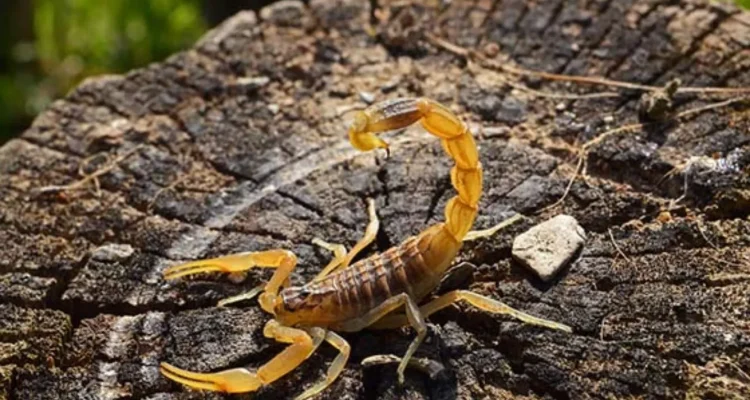Introduction
Scorpions are fascinating yet often feared creatures. While they are not commonly found in every home, their presence can be unsettling. Many people wonder why these eight-legged arachnids venture into their homes and how they can keep their living spaces scorpion-free. In this article, we’ll explore the reasons scorpions come indoors, how to prevent them, and what you can do if you find them in your home.

What Attracts Scorpions to Homes?
Food Sources
Scorpions are predators that primarily feed on insects and pests. If your home has an abundance of bugs like cockroaches, ants, or spiders, it becomes an attractive target for scorpions. These pests provide a steady food source, making your home a desirable habitat for scorpions seeking a meal.
Water Sources
Scorpions need water to survive, and homes with leaky pipes or high humidity levels can attract them. Leaks under sinks or in the bathroom create moist environments that scorpions find appealing. Similarly, homes with poor ventilation or high humidity levels can provide the damp conditions scorpions prefer.
Shelter and Hiding Spots
Scorpions seek out dark, secluded places to hide during the day. Cracks in walls, gaps around windows, and cluttered areas offer perfect hiding spots. They might also find refuge in piles of wood or debris around your property. Once inside, these areas provide a safe haven away from predators.
Why Scorpions Enter Homes
Temperature Regulation
Scorpions are ectothermic, meaning they rely on external sources to regulate their body temperature. In colder months, they may enter homes in search of warmth. A cozy, temperature-controlled home can be more inviting than the chilly outdoors, prompting scorpions to seek shelter indoors.
Seasonal Factors
Scorpions’ behavior can vary with the seasons. During hotter months, they might move towards cooler indoor spaces to escape the heat. Conversely, in colder months, they seek the warmth of your home. Understanding these seasonal patterns can help you better prepare for and prevent scorpion invasions.
Outdoor Conditions
Changes in outdoor conditions, such as construction or landscaping, can disturb scorpions’ natural habitats and drive them towards human dwellings. Additionally, extreme weather conditions can push scorpions to seek refuge indoors, especially if their natural shelters are compromised.
Common Scorpion Species Found in Homes
Bark Scorpions
One of the most common scorpions found in homes is the Bark Scorpion. This species is known for its small size and potent venom. They are adept climbers and can easily scale walls and enter homes through small openings.
Striped Scorpions
Striped Scorpions are another species often found in homes. They have distinctive stripes and are less venomous than Bark Scorpions but can still cause painful stings. They typically prefer dry, warm environments.
Other Notable Species
While Bark and Striped Scorpions are common, other species may also invade homes depending on the region. It’s essential to identify the species if you encounter scorpions to understand their behavior and potential risks better.
Signs of a Scorpion Infestation
Visual Indicators
Seeing scorpions in your home is the most obvious sign of an infestation. They are nocturnal creatures, so you might spot them at night when they come out to hunt. Look for them in dark, secluded areas like basements, attics, and under furniture.
Physical Evidence
Besides spotting scorpions, other signs can indicate their presence. You might find scorpion stings, which often cause pain, redness, and swelling. Additionally, look for scorpion trails or shed exoskeletons, which can signal a larger infestation.
Preventing Scorpions from Entering Your Home
Seal Entry Points
Preventing scorpions from entering your home starts with sealing entry points. Check for gaps around windows, doors, and foundations, and use weatherstripping and caulking to close them. Ensure that screens are in good condition and free from holes.
Reduce Food and Water Sources
Minimize scorpions’ attraction by reducing food and water sources. Regularly clean your home to eliminate insects that scorpions feed on. Fix any leaks and ensure your home has proper ventilation to avoid high humidity levels.
Remove Hiding Spots
Declutter your home and yard to remove potential hiding spots for scorpions. Store firewood and other materials away from the house and keep your yard well-maintained. By eliminating their preferred shelters, you make your home less inviting to scorpions.
Managing and Eliminating Scorpions
DIY Solutions
If you spot a scorpion, consider using DIY solutions to manage the problem. Sticky traps and natural repellents like essential oils can help deter scorpions. Additionally, regularly vacuuming and dusting can remove scorpions and their eggs.
Professional Pest Control
For severe infestations, it’s best to seek professional pest control services. Pest control experts can assess the situation, identify the species, and implement targeted treatments to eliminate scorpions and prevent future invasions.
FAQs
- What should I do if I get stung by a scorpion?
- If stung, clean the area with soap and water, apply a cold compress, and take over-the-counter pain relievers. Seek medical attention if you experience severe symptoms or allergic reactions.
- How can I tell if a scorpion is venomous?
- Venomous scorpions often have more potent stings and can cause severe pain, swelling, or systemic symptoms. Identifying the species can help determine its venom potency.
- Are scorpions dangerous to pets?
- Yes, scorpions can be harmful to pets. If stung, pets may experience pain, swelling, and allergic reactions. Ensure your pets are protected and consult a veterinarian if stung.
- How often should I check for scorpions in my home?
- Regular inspections, especially in warmer months, can help detect and prevent scorpion infestations. Check common hiding spots and keep your home clean and clutter-free.
- Can scorpions cause structural damage to my house?
- Scorpions generally do not cause structural damage. However, their presence can indicate underlying issues like leaks or cracks that might require repair to prevent other pests.

Conclusion
Understanding why scorpions come into your home can help you take effective measures to prevent and manage their presence. By addressing food and water sources, sealing entry points, and removing hiding spots, you can reduce the likelihood of scorpions invading your living space. Regular maintenance and vigilance are key to keeping these elusive arachnids at bay.


Congratulation!